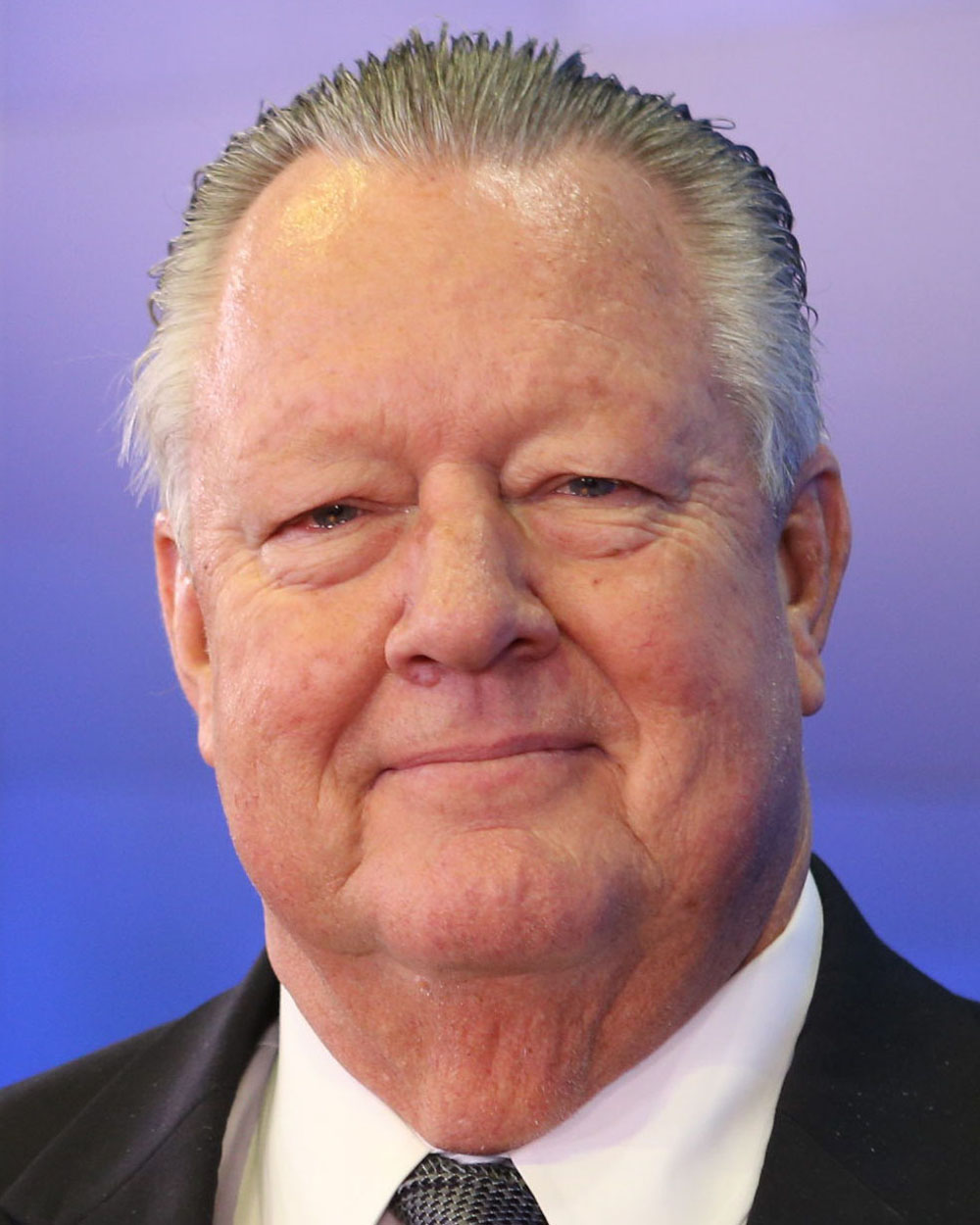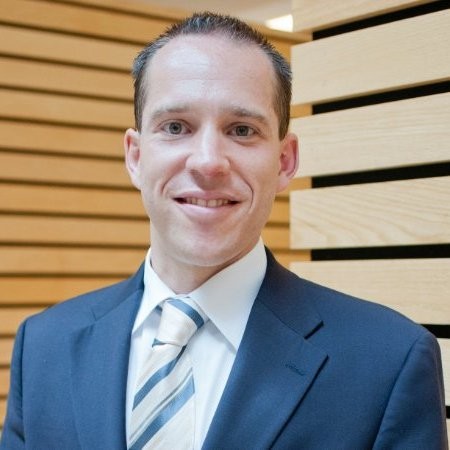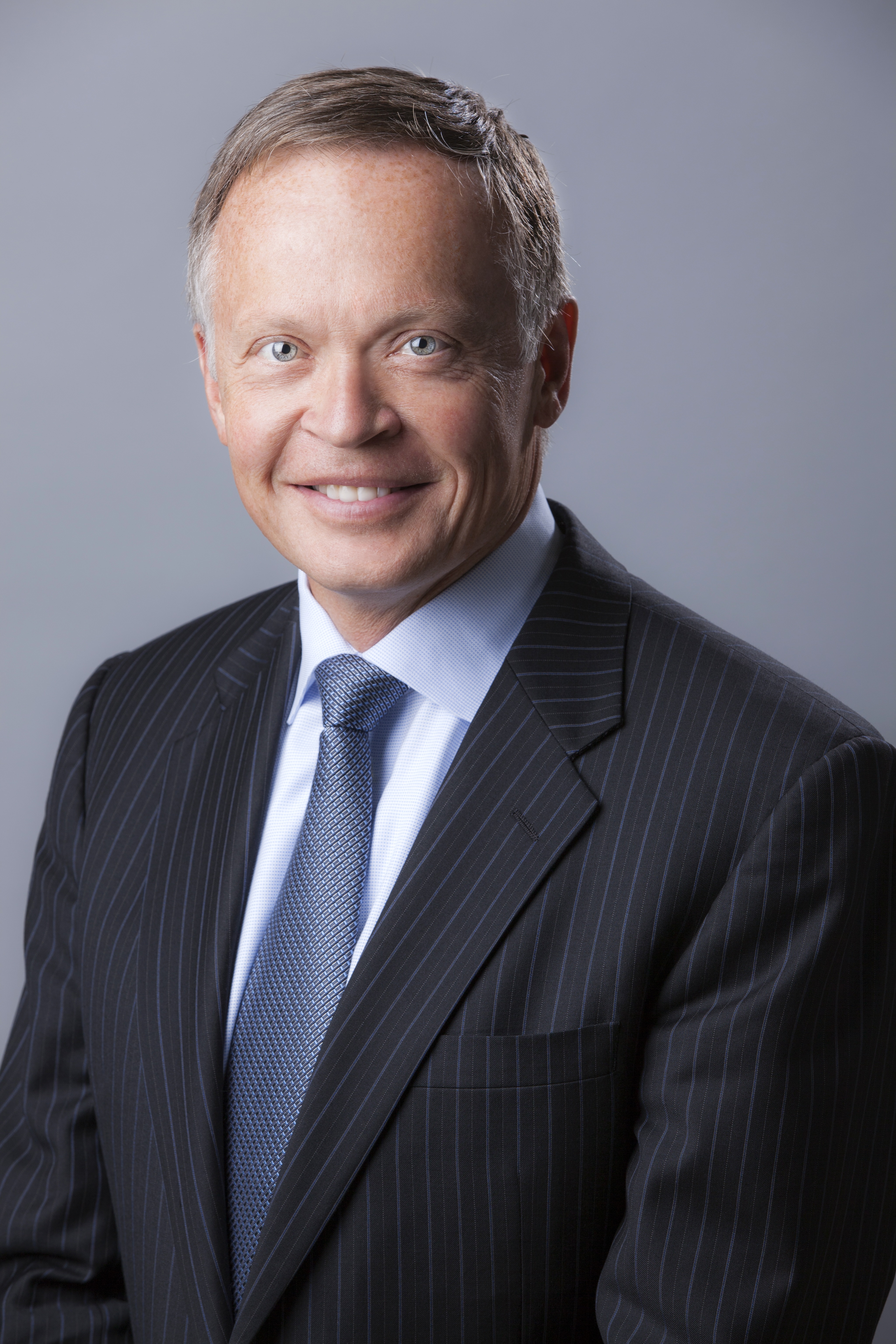
Peter Nielsen is President, Chief Executive Officer and Chief Financial Officer of Bio-Path Holdings, Inc. Mr. Nielsen co-founded Bio-Path Holdings, a public biotechnology company developing targeted oncology therapies, and currently serves as Bio-Path’s President, Chief Executive Officer, Chief Financial Officer and Chairman of the board of directors.
At the time of Bio-Path’s establishment in 2007, Mr. Nielsen licensed technology and targets from the University of Texas MD Anderson Cancer Center and coordinated preclinical development, optimization and manufacturing of Bio-Path’s lead product, prexigebersen — BP1001.
Over the next 10 years, Mr. Nielsen led the clinical advancement of BP1001 into Phase II studies, the introduction of additional pipeline candidates and the company’s public market debut.
Prior to co-founding Bio-Path, Mr. Nielsen worked with several other companies, leading turnarounds and developing and executing on strategies for growth. He currently serves as a director of Bio-Path.
Before entering the biotechnology sector, Mr. Nielsen was a lieutenant in the U.S. Naval Nuclear Power program where he was director of the physics department and was employed at Ford Motor Company in product development.
Mr. Nielsen has a broad background in senior management and has significant negotiating experience. He has earned degrees in engineering, mathematics and an MBA in finance from the University of California at Berkeley.
In this exclusive 3,119 word interview in the Wall Street Transcript, Mr. Nielsen explores the potential of Bio-Path to deliver life changing treatments for severe illnesses and superior returns for its investors.
“…We are a Phase II company with a drug candidate, prexigebersen — BP1001. We have a Phase II trial in AML, or acute myeloid leukemia, including de novo patients. We are going to be adding another cohort with refractory/relapsed patients as well.
We have a Phase II in CML, or chronic myeloid leukemia, that is open for enrollment and are working on an IND for a trial in solid tumors — this should be filed shortly.
Then, we have another IND being filed for our second drug, BP1002, which is targeting the Bcl-2 protein, which I think you know is a very important protein in apoptosis treatments.
The drug uses the same technology, our DNAbilize nanoparticle RNAi antisense. That is initially going to be targeting NHL, or non-Hodgkin’s lymphoma, and CLL, or chronic lymphocytic leukemia.”
The unique aspect of Bio-Path treatments open a big market:
“This is one of the ways in which we are differentiated in the space: We are the only company that has a nanodelivery technology that can deliver RNAi oligonucleotides throughout the body without toxicity and get entry into the cells. Nobody else with RNAi has been able to do that.
Others have either toxicity problems or poor uptake. We are the only ones that can do that with Grb2.”
Read the entire exclusive 3,119 word interview in the Wall Street Transcript for the full detail on Bio-Path straight from CEO Peter Nielsen.

Chad Beynon is a Senior Vice President and Senior Analyst who has been with Macquarie Group Limited since 2007. He conducts research and publishes reports on all gaming, lodging and movie theater companies, and is the Head of Consumer at the firm.
In 2012, Mr. Beynon received Institutional Investor’s Rising Stars of Wall Street in gaming and lodging, voted by corporate clients. Prior to joining Macquarie Group Limited, Mr. Beynon worked at Prudential Equity Group covering the beverage sector, followed by the gaming sector. Mr. Beynon graduated from the University of Maryland, double majoring in finance and logistics/supply chain management.
In this 2,751 word interview, exclusively in the Wall Street Transcript, Mr. Benyon details the evolving sports betting sector for investors.
“2018 started out well, and then, it finished very poorly mainly on the back of, I’d say, two items. One, the fear around the potential increase of interest rates. My companies carry a significant amount of debt, some of which has floating interest rates; therefore, investors began to worry about free cash flow adjustments should the Federal Reserve increase rates.
And then, the second item had to do with higher wage increases, which really began to increase in the last 18 months. While there are clearly benefits to the top line given a healthier consumer, investors became concerned around margin expansion deceleration. As a result of these two factors and a few nuanced fundamental declining items, the stocks performed poorly.”
The real upside is in expanding legalization:
“In addition, another major positive for U.S. casinos stocks is the May 2018 repeal on the ban of sports betting. So now, in certain states, actually six states to be exact, you can place a wager on a sporting event, and that is brand new in the United States, outside of Nevada.
It’s a very big market in places like the United Kingdom, Australia, Italy, Germany — some of the big, mature, well-populated markets — and we’re starting to see that in the United States. We do need state legislation to enact betting in each state, but as I said, we’ve seen it in six states.
So that’s something that I think will help the overall industry as well. We like Eldorado Resorts (NASDAQ:ERI), Caesars Entertainment (NASDAQ:CZR) and International Game Technology (NYSE:IGT).”
Get more details and more top picks from this award winning equity analyst in his 2,751 word interview, exclusively in the Wall Street Transcript.

Marco Taglietti, M.D., is President and Chief Executive Officer of SCYNEXIS, Inc. Dr. Taglietti joined SCYNEXIS as a member of the board in November 2014 and has been the Chief Executive Officer since April 2015 and the President since September 2015.
Prior to SCYNEXIS, he served as Executive Vice President, Research and Development and Chief Medical Officer of Forest Laboratories, Inc. and as President of the Forest Research Institute until its acquisition by Actavis in 2014. Prior to joining Forest Laboratories in 2007, Dr. Taglietti held the position of Senior Vice President, Head of Global Research and Development at Stiefel Laboratories, Inc., a GSK company, for three years.
He joined Stiefel Laboratories after 12 years at Schering-Plough Corporation, where he last held the position of Vice President, Worldwide Clinical Research for Anti-Infectives, Oncology, CNS, Endocrinology and Dermatology. Dr. Taglietti began his pharmaceutical career at Marion Merrell Dow Research Institute.
Over the course of his career, he has brought to market 35 different products in the U.S. and internationally. Dr. Taglietti currently serves on the board of directors of BioNJ, Inc. and Delcath (NASDAQ:DCTH). He received his medical degree and board certifications from the University of Pavia in Italy.
In this exclusive 3,951 word interview, found only in the Wall Street Transcript, Dr. Taglietti details his company’s development of an important new treatment for a serious illness:
“We believe that our product will play an important role as it is very versatile and flexible. It is being developed in severe hospital infections. Recently, just a few weeks ago, we actually issued a press release in which we discussed very positive data in patients who had fungal infections that were refractory and resistant to currently available treatments.
These patients have no or limited options, and we showed good activity in these patients. One area of development for us is hospital infections with the highly immune-compromised patients, but there is also another development that we are having in parallel in what we call our outpatients’ treatments.”
Candida auris is one of the targets for this new drug:
“Not only the CDC — Centers for Disease Control and Prevention — but all public health authorities across the world are very concerned about Candida auris. Let me tell you why they’re so concerned about it. Number one, the pathogen Candida auris is a multidrug-resistant pathogen, so it tends to be naturally resistant to azoles and many other antifungals that are currently available. Second, the Candida species is very aggressive, so mortality can be as high as 60%.”
The CEO, Marco Taglietti, M.D. explains the potential for investors:
“We have a great product and a great team with a track record of developing successful products that is as good as any I have seen in my 25-plus-year career that has involved more than 30 different products in different therapeutic areas.
So you may ask, why is our stock price so undervalued? The reason is that antifungals are not well-understood. Antibacterials typically do not do very well commercially. But the antifungals space is not a crowded market. We are addressing an area where there are very few options in the hospital, specifically, and where there is high mortality. For these indications, you usually have long treatment durations.
We believe our product, on a very conservative basis, will make total sales in excess of $500 million in the U.S. We believe it may even reach $1 billion sales in the U.S.”
Get the full detail on this development for Scynexis by reading the entire 3,951 word interview, only in the Wall Street Transcript.

Jesse Pytlak, CFA, is an Analyst in the Institutional Equity Research department of Cormark Securities Inc. and covers the cannabis industry. He joined Cormark in 2013. Previously, Mr. Pytlak worked at Ewing Morris & Co. Investment Partners and State Street. He received his Bachelor of Commerce with honors from McMaster University in 2007 and his Master of Finance from Queen’s University School of Business in 2013.
In this exclusive 3,115 word interview, only in the Wall Street Transcript, Mr. Pytlak give his top picks in this highly volatile sector:
“I cover 14 cannabis companies at the moment, and my coverage is actually quite evenly split between the Canadian-based cannabis companies such as Canopy (NYSE:CGC) and Cronos Group (NASDAQ:CRON) and the larger U.S.-based multistate operators such as Acreage (OTCMKTS:ACRGF) and Curaleaf (OTCMKTS:CURLF).
Cormark has been involved in the sector since about 2013, when the very first Canadian licensed producers started to trade publicly, and then, we started to cover some of the U.S. names in 2017. So we’ve been pretty early in this space and have really been able to observe the progression of the sector, both in Canada and the U.S.”
One specific stock pick stands out for Mr. Pytlak:
“Right now, I see the most compelling opportunities in the U.S. cannabis names, so my top pick in this space would be Curaleaf. The company has the largest vertically integrated operating platform in the U.S. today, with assets and exposure to a mix of 13 medical and adult-use states.
This shows the company is able to scale and execute operationally on a multistate basis, which is a challenge in the U.S. given the inconsistent regulatory structures in each state. Several of the current medical markets are contemplating adult-use legalization, including New Jersey and New York, so you have some good optionality from that.
And then finally, Curaleaf has the strongest balance sheet in the U.S. sector. It raised around $400 million with its go-public transaction, so very well-capitalized to continue to build out its footprint and pursue M&A. I have a C$15 target price on this stock.”
Get all of Mr. Pytlak’s top picks in the complete 3,115 word interview, exclusively in the Wall Street Transcript.

David Kideckel is a Managing Director and Senior Equity Research Analyst at AltaCorp Capital Inc., heading the firm’s health care and life sciences research. Prior to joining AltaCorp Capital, Dr. Kideckel was at another leading independent investment dealer, in his role as Director of Healthcare & Biotechnology, Institutional Equity Research.
Dr. Kideckel is a seasoned industry executive, having spent over 10 years in international pharmaceutical, biotechnology and medical device companies where he held executive roles in sales, marketing, medical affairs and international business development. Dr. Kideckel holds a Ph.D. and MBA from the University of Toronto’s Institute of Medical Science and Rotman School of Management, respectively.
In this exclusive 2,953 word interview, only in the Wall Street Transcript, Dr. Kideckel appraises the current state of the medicinal cannabinoid market.
“We’re the only firm in North America to have coverage of all three subsectors of cannabis, namely recreational cannabis, medical cannabis and cannabinoid-derived pharmaceuticals, and that’s the pharmaceutical type of cannabis.
For example, we’re the only Canadian investment bank to hold coverage on GW Pharma (NASDAQ:GWPH). In fact, we just took GW Pharma marketing last week in Boston and met with some of the world’s leading buy-side funds.”
According to Dr. Kindeckal, the investment upside will be in M&A:
“And M&A being a cornerstone for this sector as a whole, you’ll see, for example, one of the areas that we’re very vocal on is that, you’ve seen big beverages enter cannabis, Constellation (NYSE:STZ) with Canopy (NYSE:CGC), for example, you’ve seen big tobacco, Altria (NYSE:MO) with Cronos (NASDAQ:CRON), but what’s noticeably absent from the space has been Big Pharma.
Yes, there are a few smaller partnerships out there; there’s Tilray (NASDAQ:TLRY) with Novartis (NYSE:NVS), CannTrust (NYSE:CTST) with Apotex, which is a private company in Canada. But what we’re talking about is the level of magnitude of Big Pharma entering the space.
And having spent over 10 years in the industry myself, I know that Big Pharma is a very conservative industry, and once we see some more clarity and guidance being provided by both the U.S. at a federal level as well as the FDA, I think you’ll see pharmaceutical companies being less timid to enter the space. So that, I think, is going to be a focal point for 2019 and beyond.”
Get more top predictions from Dr. Kidreckal in this exclusive 2,953 word interview, only in the Wall Street Transcript.

John P. Goetz is Managing Principal, Co-Chief Investment Officer, Portfolio Manager and member of the executive committee at Pzena Investment Management. Mr. Goetz is a co-portfolio manager for the Global, International, European, Emerging Markets and Japan Focused Value strategies.
He also previously served as the Director of Research and was responsible for building and training the research team. Mr. Goetz became a member of the firm in 1996. Prior to joining Pzena Investment Management, Mr. Goetz held a range of key positions at Amoco Corporation, his last as the Global Business Manager for Amoco’s $1 billion polypropylene business where he had bottom-line responsibility for operations and development worldwide.
In this exclusive 4,457 word interview in the Wall Street Transcript, John Goetz describes how he maximizes returns for his investors.
“…At any given moment, there are probably some good businesses that are trading at very low valuations. Typically, you don’t get a low valuation without some significant controversy or problem that’s developed, but if we could systematically identify and then research those situations, we could form portfolios of good businesses with temporary pain that could be very rewarding in terms of the stock price over the longer term.”
One such example is the China utility stock play:
“In this case, we actually believe that coal prices were going to go back down. In an odd way, actually, we’re saying this investment was partly a short of coal.
What I like about something like that, when you think about portfolio construction — now, I’m actually saying our investment in the utilities, Huadian Power (HKG:1071) and China Resources Power (HKG:0836), is actually going to do better if China slows down again, which is what’s currently happening.
So as demand for electricity slows down, demand for coal slows down, coal prices start going back down, and the utility returns, counterintuitively, start going back up.”
Get more detail on this investment and many others, only by reading the entire 4,457 word interview, exclusively in the Wall Street Transcript.

Manisha Samy is an Analyst at ARK Investment Management LLC. Ms. Samy joined ARK as a thematic analyst on the Genomic Revolution team in February 2016. Her focus is on gene editing, gene therapy, instrumentation, targeted therapeutics, agricultural biology, diagnostics and stem cells.
Prior to ARK, Ms. Samy worked as a management consultant for Kepler Cannon. Before that, she gained experience as a business solution analyst at Attensity America. Ms. Samy graduated from Stanford with a Bachelor of Science in science, technology and society: life sciences and biotechnology.
She has spent eight years in Stanford’s research lab studying stem cells in acute myeloid leukemia.
In this 3,640 word interview, exclusively in the Wall Street Transcript, Ms. Samy reviews her firms commitment to gene therapy stocks and her personal picks:
“…Whenever we do trades as we release all of our trades at the end of the day so people can see exactly what we’re buying or selling. Often, since we are actively managed, even if we do have high conviction, let’s say a stock has soared quite a bit, we will take the profits and invest in companies that have been hit.
Internally, the way that we invest in companies is we have a 15% hurdle rate. So this is 15% over five years. Basically compounded over five years, we think that a stock’s price will double, so that is our minimum hurdle rate to invest in a company.”
The mismatch between target market size and current valuations drives Ms. Samy’s core picks.
“…For Editas, Intellia and CRISPR Therapeutics, right now, combined, they struggle to maintain $4 billion in market capitalization. But, based on our research, we think just addressing monogenic diseases is a $75 billion market opportunity.
If you look at the CAR-T market, we believe globally it can reach $430 billion total addressable market opportunity a year. So at $430 billion, you will have royalties being paid down to these CRISPR companies, especially since a lot of the next-generation CAR-Ts are utilizing CRISPR.”
Read the entire 3,640 word interview, exclusively in the Wall Street Transcript, and get all the top gene therapy stock picks.

Christopher Ward joined the GAMCO Investors, Inc. Growth Team in 2015 as Vice President and Associate Portfolio Manager. Prior to joining GAMCO, he was Director of Business Strategy and Portfolio Management Associate for The Apollo Group at Morgan Stanley Private Wealth Management.
Before joining Morgan Stanley, he was with the GFI Group, Inc., a wholesale institutional brokerage firm. He is a Chartered Financial Analyst and a member of the New York Society of Security Analysts. He is a graduate of Boston College with a Bachelor of Arts degree in economics.
In this exclusive 3,623 word interview in the Wall Street Transcript, Mr. Ward details his portfolio management vision and explains his top picks for 2019:
“The growth strategies that we run begin with a thematic approach. We focus on secular growth industries, and the themes that we are focused on must be long-term structural trends and investable. I say “investable” because there are some interesting growth industries right now, whether it’s cannabis, gene editing, blockchain, etc.
But we are yet to identify investment vehicles in those areas that we have a lot of conviction in. And we run relatively concentrated portfolios. We need to have conviction in every position.”
One of his several top picks is competing against long term winners:
“I have to mention Workday (NASDAQ:WDAY) as well, which is another software-as-a-service business, just like ServiceNow. Again, Workday is benefiting from the shift to the cloud.
Workday is disrupting the legacy ERP — enterprise resource planning — vendors like Oracle (NYSE:ORCL) and SAP (NYSE:SAP). Oracle and SAP combined comprise about 35% of the ERP market. Workday has maybe 4% or 5%. And outside of those three big players, the space is hugely fragmented.”
Get the other top picks from Christopher Ward and their details in the complete 3,623 word interview, only in the Wall Street Transcript.

Gbola Amusa is Partner, Director of Research and Head of Healthcare Research of Chardan. Dr. Gbola Amusa joined Chardan at the end of 2014 to focus on identifying companies that will generate exceptionally high long-term investment returns by creating shared value for society.
Dr. Amusa was previously Managing Director, Head of European Pharma Research, and Global Pharma and Biotech Coordinator at UBS, where he oversaw 25 analysts and ultimately finished as the number-one-ranked European pharma analyst in the Institutional Investor — II — Survey.
In this extensive 5,116 word interview, exclusively in the Wall Street Transcript, Dr. Amusa details his bullish recommendation for RGNX:
“The company has 35 or so products in its portfolio, with roughly 30 of which that are from partners who are burning their own cash to potentially pay REGENXBIO a royalty in the future. So it’s always great in therapeutics when someone else does the work for you and then you get a reward at the end if it proves successful.
The most important partner for many years has been AveXis, as it produced one of the best data sets in the history of gene therapy. AveXis’ product, which now is owned by Novartis (NYSE:NVS) after the acquisition, can come out of the gate strongly after perhaps May of this year. REGENXBIO will get 10% of sales presumably, and that could turn REGENXBIO into a profitable company.”
Dr. Amusa highlights other upside potential for this company:
“…There are diseases like wet age-related macular degeneration where there are literally over a million people in the U.S. and maybe 2 million to 3 million people in the key drug markets of U.S., Europe and Japan, so even capturing a small percentage of the market, as in a very small percent, could lead to a blockbuster since gene therapies are priced upfront for anywhere from five years to 10 years of benefit.
The company can generate a tremendous amount of revenues in an unpartnered way if the wet AMD product starts to show signs of success, which some would argue they have already shown and some would argue they need to show more, but even just a shifting of the market’s probability modestly upward on REGENXBIO can lead to stock performance.
This is because Eylea and Lucentis, the two products that dominate wet AMD and other retinal diseases, generated $10.5 billion in sales last year. If a gene therapy provides five years of Eylea- or Lucentis-like benefit, five times that figure would be over $50 billion for a market opportunity. These are very vast markets in relation to REGENXBIO’s market cap.”
Get the full 5,116 word interview, only in the Wall Street Transcript.

Brian Shepardson, CFA, CIC, has been with James Investment Research, Inc. since 1999, and he is First Vice President and Portfolio Manager, and serves as an investment committee member. In addition, Mr. Shepardson is the Secretary and Assistant Treasurer of the James Advantage Funds.
Mr. Shepardson has many duties, including the analysis of equities, fixed income and mutual funds. He obtained his Bachelor of Business Administration in finance from the University of Cincinnati in 1996.
In this 3,314 word interview, Mr. Shepardson details his firm’s devotion to investors and suggests some themes for current investment strategies:
“Right now, I would say one of the stocks that I’ve been watching has been Micron (NASDAQ:MU). I think what I find most interesting about Micron at this point is that there was a pullback in the stock price during much of 2018. So it had lost over 50% of its value only to bottom out right around Christmastime, and it has rallied back since then. And as you look at that fall in price, it really compressed the p/e ratio to where it’s now down below four.
When you look at the potential for a value stock, this is one that really stands out, especially when you look within the technology arena. A lot of times those stocks trade up at much higher multiples. When you look at Micron, it shows up very favorably.”
Overall, Mr. Shepardson sees a growing value to portfolio management:
“…There’s probably a little bit more attention paid to the Federal Reserve considering, if you go back just a couple years, we had been in a 30-plus-year bull market for fixed income more or less. So if you think back to the 1980s, and you had bought a 30-year Treasury, and you could have bought it with a 15% yield to maturity, that’s a pretty good return if you could just buy and hold…”
Get the full 3,314 word interview, only in the Wall Street Transcript.